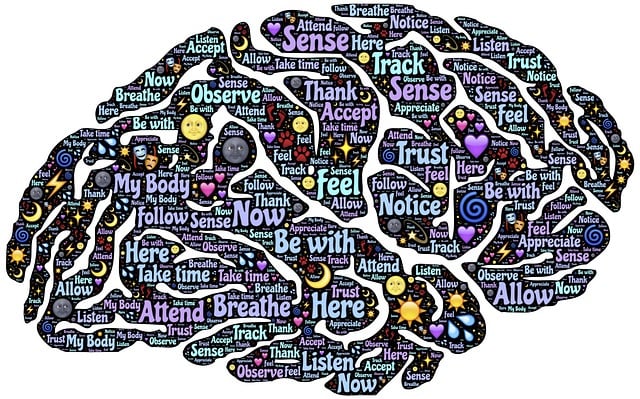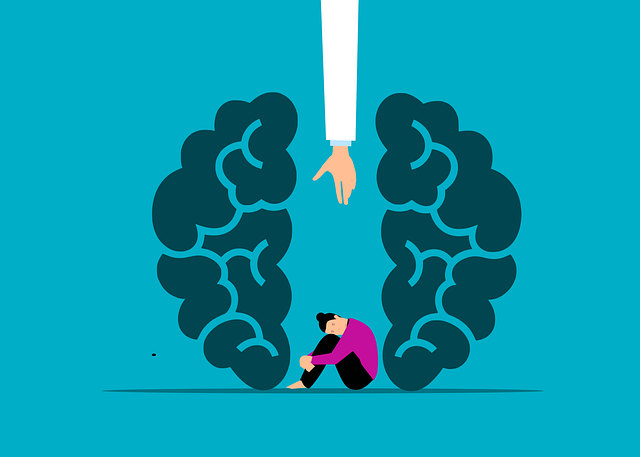Louisville blended families face unique emotional challenges integrating biological and step-parent dynamics. Louisville Blended Families Therapy addresses these issues through emotion regulation strategies, enhancing family connections and reducing conflicts. Tailored mental healthcare, including mindfulness practices, CBT, and cultural sensitivity, equips families with tools to manage stress, improve communication, and foster a harmonious environment.
Emotion regulation is a vital skill for individuals, especially those in Louisville blended families. This article explores strategies to empower family members to navigate emotional challenges effectively. We delve into common hurdles faced by Louisville blended families and present practical techniques to teach emotion regulation skills. By understanding these methods, families can foster resilience, improve communication, and enhance overall well-being through tailored therapy practices, ultimately enriching their lives.
- Understanding Emotion Regulation for Louisville Blended Families
- Common Challenges in Emotion Regulation within Blended Families
- Effective Techniques to Teach Emotion Regulation Strategies
- Implementing and Practicing Emotion Regulation Skills in Daily Life
Understanding Emotion Regulation for Louisville Blended Families

Understanding Emotion Regulation is a vital step for Louisville Blended Families seeking to navigate the complexities of their unique family dynamics. In the context of blended families, emotion regulation techniques become essential tools for fostering healthy relationships and creating a nurturing environment. Many challenges arise when biological parents, step-parents, and children from different backgrounds merge, and learning to manage emotions effectively can help mitigate potential conflicts.
Louisville Blended Families Therapy often emphasizes Emotional Intelligence (EI) as a foundational aspect of emotion regulation. Developing EI involves recognizing and understanding one’s own emotions and those of others, which is crucial for building strong connections within the family unit. Additionally, Inner Strength Development plays a significant role in helping each family member cope with stress and regulate their emotions. Cultural Sensitivity in Mental Healthcare Practice is also integral, as therapists must adapt their approaches to respect and accommodate diverse cultural backgrounds, ensuring every family member feels seen and heard.
Common Challenges in Emotion Regulation within Blended Families

Navigating emotional regulation within Louisville blended families can pose unique challenges due to the diverse dynamic between biological and step-parents and their respective children. Step-parent adoption, for instance, introduces complex emotional adjustments not only for the child but also for both parents, requiring tailored strategies for successful integration. Moreover, managing the expectations and emotional needs of each family member is crucial, as differing attachment styles and past experiences can significantly impact present-day interactions and stress levels.
Community outreach program implementation plays a vital role in addressing these challenges. By offering support groups and educational workshops focused on emotional well-being promotion techniques, Louisville blended families therapy initiatives can foster open communication and provide practical tools for managing intense emotions. These programs create safe spaces where parents and children alike can learn coping mechanisms, enhance their emotional vocabulary, and develop stronger bonds, ultimately nurturing a more harmonious family environment.
Effective Techniques to Teach Emotion Regulation Strategies

Teaching emotion regulation strategies is a vital part of supporting individuals, especially those in Louisville blended families therapy settings. Effective techniques should be tailored to meet the unique needs of each person, taking into account their age, cultural background, and specific challenges. One proven approach involves incorporating mindfulness practices, such as deep breathing exercises and guided meditations, which help individuals develop a greater awareness of their emotions and learn to respond rather than react impulsively.
Additionally, cognitive behavioral therapy (CBT) techniques can empower individuals to challenge negative thought patterns and replace them with more balanced perspectives. Mental wellness coaching programs development often emphasizes the importance of setting realistic goals, building self-compassion, and fostering effective communication skills. Stress management workshops organization can provide practical tools for coping with everyday stressors, while risk assessment for mental health professionals ensures that at-risk individuals receive the appropriate support and intervention.
Implementing and Practicing Emotion Regulation Skills in Daily Life

Implementing emotion regulation skills learned through therapy is a crucial step toward managing feelings effectively in daily life. At Louisville Blended Families Therapy, we emphasize practical strategies tailored to individual needs, ensuring that our clients can navigate emotional challenges with greater ease. This may involve setting aside dedicated time for mindfulness exercises or journaling, which can help individuals process and understand their emotions. By integrating these practices into routines, individuals become more attuned to their internal experiences, enabling them to respond to stressful situations with resilience rather than reacting impulsively.
Cultural sensitivity in mental healthcare practice is another vital aspect of successful emotion regulation. At Louisville Blended Families Therapy, we recognize the impact that cultural background and identity can have on emotional expression and coping mechanisms. Our therapists are trained to create a safe, inclusive environment where individuals from diverse backgrounds feel understood and respected. This approach fosters open communication, encourages the exploration of cultural influences on emotional well-being, and promotes the development of personalized strategies for stress management and depression prevention.
Louisville blended families can greatly benefit from understanding and teaching emotion regulation techniques. By addressing common challenges specific to these families, parents and caregivers can empower children and teens to navigate their emotions effectively. Through practical strategies and consistent practice, individuals within blended households can foster resilience and improve overall well-being, creating a more harmonious environment for all. Louisville blended families therapy, when incorporating emotion regulation teachings, offers a powerful tool for strengthening relationships and nurturing healthy emotional development.














